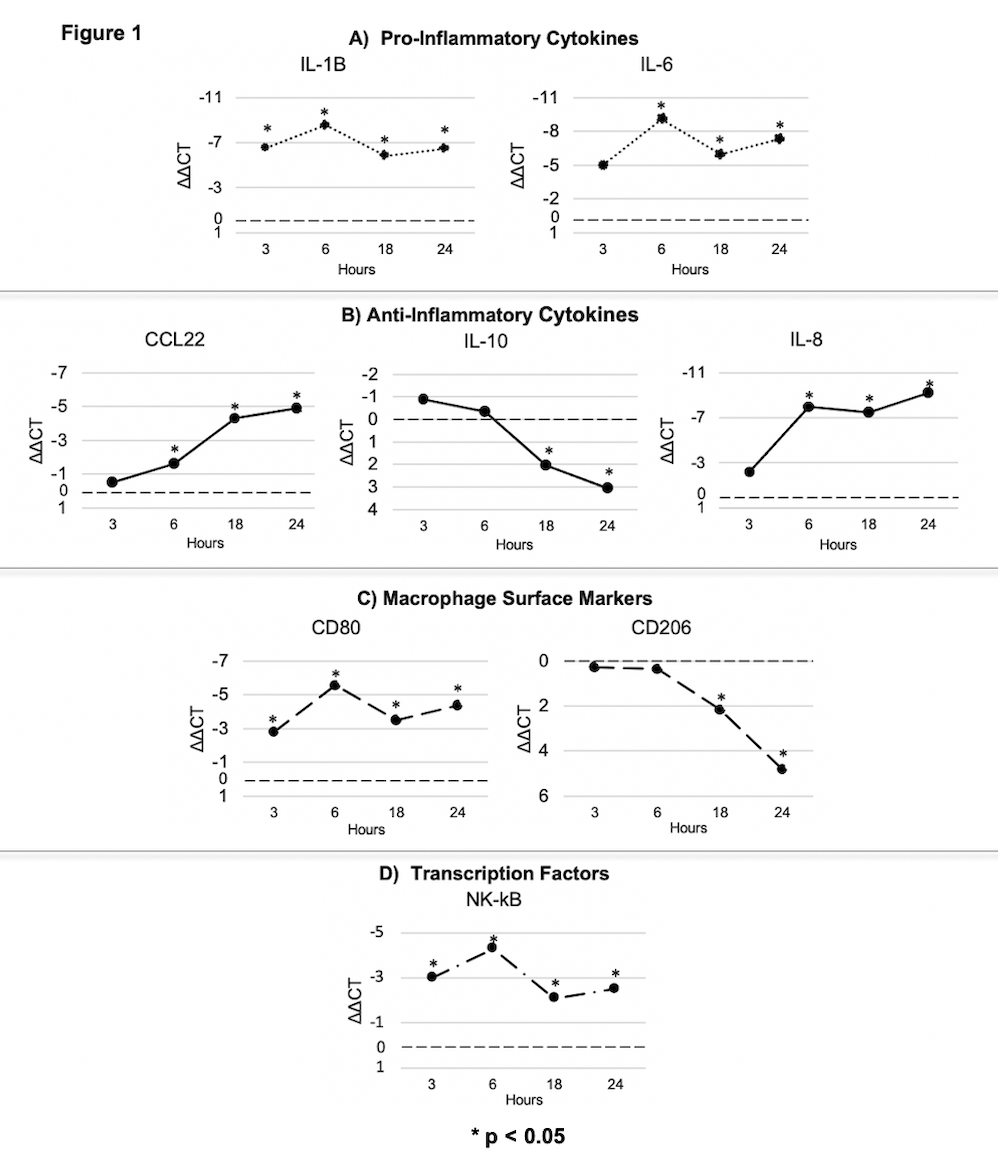M. A. Parks1, 2, K. Scheurlen1, D. Snook1, C. Seraphine1, S. Galandiuk1 1Price Institute of Surgical Research, Division Of Colorectal Surgery, Louisville, KENTUCKY, USA 2University of Louisville, School Of Medicine, Louisville, KENTUCKY, USA
Introduction: Early onset colorectal cancer (EOCRC)(<50 years) is a growing cause of cancer-related deaths in the United States. Similarly, obesity rates continue to trend up. CRC progression is affected by inflammation mediated through tumor-associated macrophages (TAMs) of a largely anti-inflammatory M2-like phenotype, that is associated with worse CRC prognosis.
The impact of the adipokine adiponectin on M2-like macrophages and progression in CRC is poorly understood. Anti-inflammatory cytokine expression, downregulation of the transcription factor Peroxisome Proliferator Activated Receptor g (PPARγ) and upregulation of Nuclear factor-κB (NF-κB) are associated with advanced tumor stage and worse outcome in patients with CRC. The aim was to investigate the effects of adiponectin on tumor-promoting cytokines, transcription factors, and cell surface markers following adiponectin treatment in M2-like macrophages.
Methods: THP-1 cells were seeded onto culture plates and polarized into a distinct M2-like macrophage phenotype within 14 days. Cells were then treated with adiponectin for either 3, 6, 18, or 24 hours. mRNA was extracted and qRT-PCR was performed. Cytokine gene expression was measured relative to untreated control cells. For statistical analysis, paired t-tests were used.
Results: Following adiponectin treatment, M2-like macrophages showed a peak upregulation of the anti-inflammatory tumor-promoting cytokines C-C Motif Chemokine Ligand 22 (CCL22) after 24 hours (42-fold, p=0.002) and interleukin-8 (IL-8) after 18 hours (683-fold, p=<0.001), while IL-10 expression was maximally downregulated after 24 hours (- 9-fold, p=<0.001) (Fig. 1B). Peak upregulation of the tumor-promoting proinflammatory cytokines IL-6 (1130-fold, p=0.001) and IL-1b (485-fold, p=<0.001) was reached after 6 hours of adiponectin treatment, respectively (Fig. 1A). Expression of the M1-like macrophage surface marker CD80 was maximally increased after 6 hours (52-fold, p=0.003), while expression of the M2-like marker CD206 showed the lowest decrease at 24 hours (- 30-fold, p=<0.001) (Fig. 1C). NF-κB expression was increased at all time points with a peak at 6 hours (20-fold, p=<0.001) (Fig. 1D). We observed no significant change in expression of PPARγ or anti-inflammatory CCL18.
Conclusion: Adiponectin promotes expression of cancer-related cytokines and NF-κB in M2-like macrophages, thereby triggering cancer progression in CRC. Upregulation of the M1-like cell surface marker CD80 following adiponectin treatment shows that a phenotypic change of macrophages towards an M1-like proinflammatory phenotype is induced. Adiponectin may be an important a link between obesity, inflammation and EOCRC.
